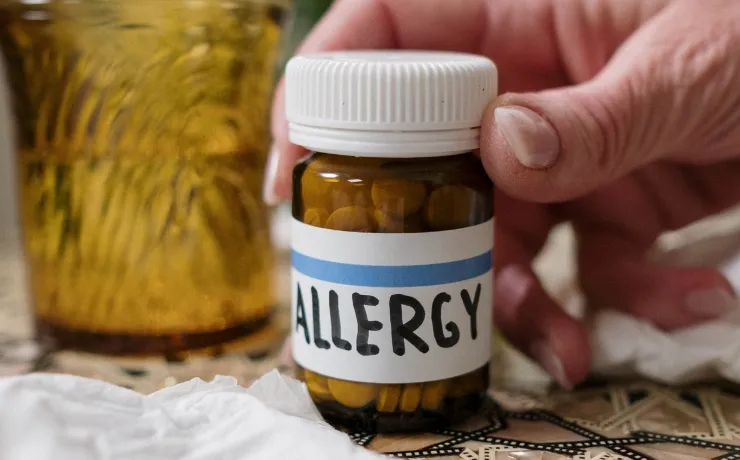The Pharmacist’s Guide to Preventing and Treating Seasonal Allergies

Seasonal allergies are a common issue, especially during the spring and fall when pollen levels are at their highest. These allergies, also known as hay fever or allergic rhinitis, occur when your immune system overreacts to allergens such as pollen, mold, or dust mites. Symptoms include sneezing, runny nose, itchy eyes, and congestion, all of which can make life more challenging. Fortunately, Farmington Drugs is here to help you navigate through these uncomfortable symptoms and find the best treatment options. In this guide, we’ll cover how you can prevent and treat seasonal allergies effectively.
Understanding Seasonal Allergies
Seasonal allergies occur when your immune system mistakes harmless particles—like pollen or mold—as harmful invaders. This causes your body to release chemicals, like histamine, which result in symptoms like congestion, sneezing, itching, and watery eyes.
There are two main types of seasonal allergies:
-
Spring Allergies: These are typically caused by tree pollens, like oak, birch, and cedar, which peak in early spring.
-
Fall Allergies: Ragweed pollen is the major culprit in fall allergies, along with mold spores from fallen leaves.
The severity of your symptoms can vary from year to year, depending on factors like the weather, pollution, and how much exposure you have to allergens.
How to Prevent Seasonal Allergies
While it’s impossible to completely eliminate allergens from your environment, there are several strategies you can use to minimize exposure and reduce the severity of your symptoms.
1. Stay Informed About Pollen Levels
Many pharmacies, weather apps, and local news stations provide pollen counts, which show the level of pollen in the air each day. By checking the pollen count regularly, you can plan your outdoor activities around times when the levels are lower, typically in the early morning or late evening.
2. Keep Windows Closed
During high pollen seasons, it’s best to keep your windows closed, both at home and in your car. This helps to prevent pollen from entering your living spaces. If you need to air out your house, consider doing so early in the morning or after it rains, when pollen counts tend to be lower.
3. Use Air Purifiers
Air purifiers equipped with HEPA filters can help remove pollen, dust, and other allergens from the air inside your home. If you have allergies, it’s a good idea to place air purifiers in your bedroom, living room, and other frequently used areas.
4. Shower After Being Outdoors
When you return home from outdoor activities, make sure to shower and change your clothes to remove any pollen that may have stuck to your skin, hair, or clothing. This is particularly important if you've been outside during high pollen periods.
5. Maintain Your Home Clean
Regularly cleaning your home, including vacuuming with a HEPA filter vacuum cleaner, can reduce dust and mold buildup, which can aggravate allergy symptoms. Be sure to wash your bedding frequently and clean any areas that might harbor mold, such as bathrooms or basements.
How Your Pharmacist Can Help Treat Seasonal Allergies
When prevention methods aren’t enough, there are various treatments that can help alleviate allergy symptoms. Farmington Drugs offers a wide range of allergy medications, including over-the-counter (OTC) and prescription options.
1. Antihistamines
Antihistamines are one of the most commonly used treatments for seasonal allergies. They work by blocking histamine, the chemical responsible for most allergy symptoms. Antihistamines are available in both oral and nasal spray forms, and they can help relieve symptoms like sneezing, runny nose, and itchy eyes.
-
Oral antihistamines: These are typically taken once a day and provide relief from a variety of allergy symptoms.
-
Nasal spray antihistamines: These work directly in the nasal passages and are effective for congestion and sneezing.
2. Decongestants
Decongestants can help reduce nasal congestion caused by seasonal allergies. They work by narrowing the blood vessels in your nasal passages, allowing air to flow more freely. Decongestants are available in both oral and nasal spray forms.
-
Oral decongestants: These can be taken for short-term relief but should not be used for more than a few days to avoid side effects like increased blood pressure.
-
Nasal spray decongestants: These work quickly but should also be used with caution, as overuse can lead to a rebound effect, making congestion worse.
3. Nasal Corticosteroids
Nasal corticosteroids are prescription or OTC medications that help reduce inflammation in the nasal passages, providing long-lasting relief for congestion, sneezing, and a runny nose. They are effective for both seasonal and perennial allergies.
Unlike decongestant nasal sprays, nasal corticosteroids can be used safely for long periods and can provide significant symptom relief.
4. Eye Drops
If your seasonal allergies cause itchy or watery eyes, antihistamine eye drops can provide targeted relief. These eye drops work by blocking the effects of histamine in the eyes, reducing symptoms such as redness and itching.
5. Allergy Shots (Immunotherapy)
For individuals with severe or persistent allergies, immunotherapy or allergy shots may be a good option. This treatment involves a series of injections that help your immune system become less sensitive to allergens over time. It’s typically recommended for people who don’t find relief from other treatments or who have multiple allergies.
6. Allergy-Friendly Natural Remedies
Some people prefer to use natural remedies alongside or instead of traditional allergy medications. These might include:
-
Saline nasal irrigation: Rinsing your nasal passages with a saline solution can help remove pollen and other irritants from the nasal cavity.
-
Butterbur extract: This herb has been shown to reduce allergy symptoms in some people. Be sure to speak with your pharmacist before trying any supplements.
Talk to Your Pharmacist for Personalized Advice
If you’re struggling with seasonal allergies, Farmington Drugs can help you choose the best treatment options based on your specific symptoms and needs. Your pharmacist can provide advice on which medications are most effective, help you understand how to use them properly, and monitor for any potential interactions with other medications you may be taking.
In addition to recommending medications, pharmacists can guide you through lifestyle changes and prevention strategies that can further reduce your exposure to allergens.





